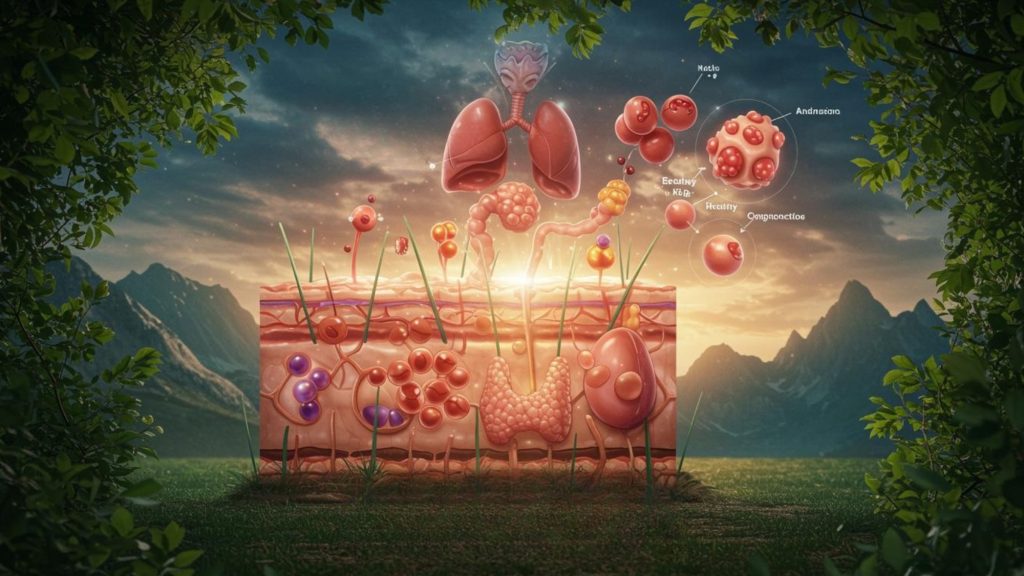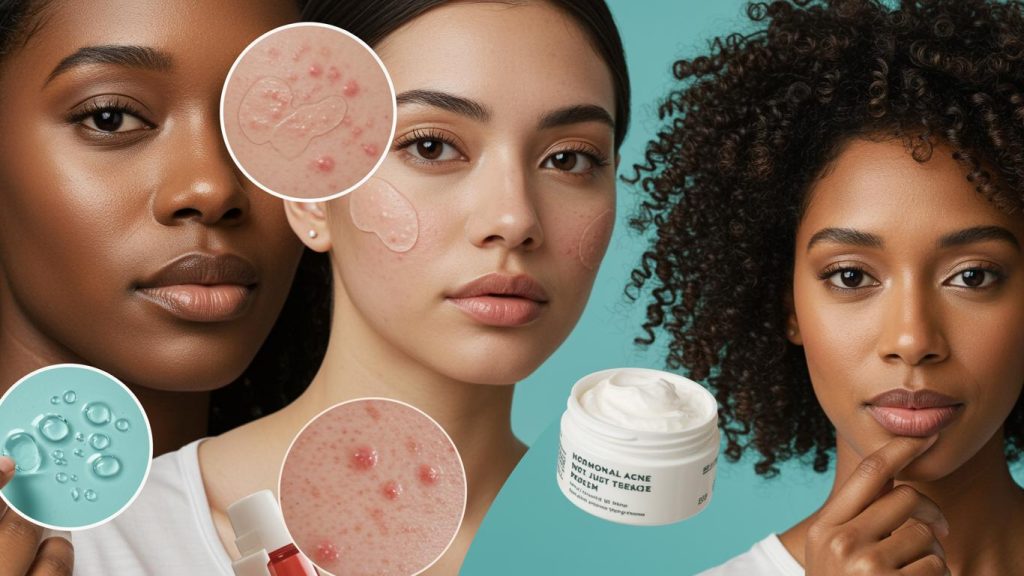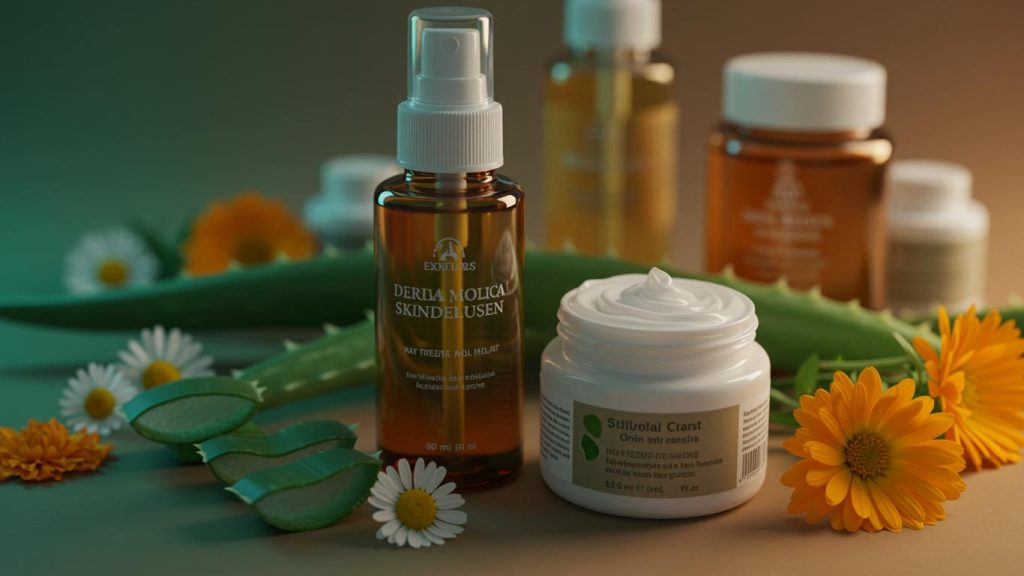Skin issues often feel like a battle waged just beneath the surface, but the real battleground lies deeper, inside the intricate, invisible world of your hormones.
If you've struggled with persistent acne, sudden dryness, inflammation, or premature aging, the culprit might not be your skincare products but your hormonal health.
Let's peel back the layers and show you how to unlock radiant skin by fixing hormonal imbalances, reigniting your natural glow from the inside out.
How Hormones Directly Influence Your Skin
Hormones act as biological conductors, orchestrating skin cell production, oil regulation, and inflammatory responses. When hormones fall out of sync, the skin often cries out for help through breakouts, dullness, or redness.
Recognizing the Skin Symptoms of Hormonal Imbalance
- Adult-onset acne, particularly along the jawline
- Sudden dryness or flakiness
- Oily patches and clogged pores
- Increased sensitivity or redness
- Hyperpigmentation or melasma
- Premature fine lines and wrinkles
Each symptom tells a story of internal imbalance demanding attention.
The Endocrine System and Skin Health: An Intimate Connection

Your endocrine system governs hormonal output from the adrenal glands, thyroid, ovaries, and pancreas. When these glands misfire, the skin feels the seismic impact.
According to Harvard Health, even minor shifts in endocrine function can manifest visibly in your complexion.
Key Hormones That Influence Skin Quality
- Estrogen: Maintains hydration, elasticity, and thickness
- Progesterone: Regulates oil production
- Testosterone: Controls sebum output but can lead to acne when elevated
- Cortisol: Triggers inflammation during stress
- Thyroid hormones: Regulate cellular turnover and moisture balance
Knowing these hormonal players is essential for targeting solutions.
Hormonal Acne: Not Just a Teenage Problem

Many adults, especially women, experience hormonal acne flare-ups during periods, pregnancy, menopause, or high-stress periods. These breakouts often resist typical topical treatments because they originate from within.
How Stress Hormones Sabotage Skin
When under chronic stress, your body floods with cortisol. Elevated cortisol promotes increased oil production, delayed wound healing, and heightened inflammatory responses—all bad news for your skin.
The Mayo Clinic reports that chronic stress directly correlates with exacerbated skin conditions like eczema, psoriasis, and acne.
The Estrogen-Glow Connection
Optimal estrogen levels promote collagen synthesis, maintain skin thickness, and enhance hydration. Estrogen decline, common during perimenopause and menopause, leads to sagging, dryness, and loss of youthful plumpness.
Thyroid Dysfunction and Skin Deterioration
An underactive thyroid can cause dry, coarse skin and thinning hair, while an overactive thyroid may lead to flushed, sweaty skin. Maintaining thyroid health is crucial for preserving a radiant complexion.
How Diet Impacts Hormonal and Skin Health
Your fork holds more power over your face than any cosmetic serum. Key foods that bolster hormonal balance and, by extension, skin vitality include:
- Wild salmon for omega-3 fatty acids
- Avocados for healthy fats
- Leafy greens for magnesium and antioxidants
- Seeds like flax and chia for phytoestrogens
A nutrient-rich diet is your first defense against hormonal upheaval.
Foods That Worsen Hormonal Imbalances
Steer clear of:
- Refined sugars
- Dairy products (for some sensitive individuals)
- Processed vegetable oils
- Alcohol
These culprits can disrupt insulin, estrogen, and cortisol levels, worsening skin flare-ups.
Healing Hormones with Adaptogenic Herbs
Adaptogens like Ashwagandha, Holy Basil, and Rhodiola Rosea help your body modulate cortisol levels and restore hormonal equilibrium. A balanced stress response creates a fertile ground for skin healing.
Clinical research from PubMed validates the stress-lowering, hormone-balancing impact of adaptogens.
Sleep: The Overnight Elixir for Hormonal and Skin Repair
Sleep deprivation increases cortisol, impairs insulin sensitivity, and disrupts growth hormone secretion—all factors that wreck your skin's glow.
Aim for 7–9 hours of restorative sleep in a dark, cool environment to maximize overnight skin regeneration.
Strategic Supplements for Hormonal and Skin Renewal
Smart supplementation can tip the scales toward healing. Consider:
- Zinc: Reduces inflammation and supports skin healing
- Vitamin D3: Modulates immune response and hormonal function
- Magnesium: Balances cortisol and supports restful sleep
- Omega-3 fatty acids: Fight systemic inflammation
For a professionally formulated solution designed to support hormonal balance and radiant skin, explore this high-quality option.
Detoxification: Clearing Hormonal Roadblocks
The liver metabolizes excess hormones. If it's overwhelmed by toxins, hormonal balance falters. Support detox pathways with:
- Dandelion root tea
- Milk thistle supplements
- Hydration (at least 2 liters of water daily)
- High-fiber foods for toxin elimination
Balancing Insulin for Clearer Skin
Insulin resistance often triggers hormonal acne and skin dullness. Stabilize blood sugar with:
- Low-glycemic foods
- Regular movement
- Avoiding sugary snacks and drinks
Improved insulin sensitivity cascades into calmer, clearer skin.
How Exercise Supports Hormonal and Skin Health
Exercise:
- Lowers cortisol
- Enhances insulin sensitivity
- Boosts growth hormone for cellular renewal
- Improves blood flow, delivering nutrients to the skin
However, overtraining can have the opposite effect, so aim for moderate, joyful movement like yoga, walking, and strength training.
Mind-Body Practices for Skin-Healing Hormonal Balance
Mindfulness meditation, breathwork, and gratitude journaling may seem “soft,” but they are biochemical powerhouses. They regulate the parasympathetic nervous system, lower cortisol, and promote hormonal harmony.
The NIH confirms the tangible hormonal shifts induced by regular meditation practices.
Topical Skincare to Support Internal Healing

While internal healing is paramount, supportive topical skincare enhances results. Choose products rich in:
- Niacinamide (Vitamin B3)
- Hyaluronic acid
- Retinoids (Vitamin A derivatives)
- Gentle botanical extracts like chamomile or calendula
Always opt for non-comedogenic, fragrance-free formulas to avoid unnecessary skin stress.
Crafting a Daily Routine for Hormonal and Skin Radiance
- Morning: Hydrating cleanser + antioxidant serum
- Midday: Light movement and blood sugar-stabilizing meals
- Evening: Mindful wind-down, stress management, nutrient-dense dinner
- Night: Restorative sleep in a toxin-free environment
Small daily habits compound into glowing, hormonal harmony.
When to Seek Professional Guidance
Consult a holistic dermatologist, endocrinologist, or functional medicine practitioner if symptoms persist despite lifestyle interventions. Hormonal testing (blood, saliva, or DUTCH) can provide precise insights for tailored treatments.
The Road to Radiant Skin Is an Inside Job
Glowing skin is not a superficial luxury—it's a reflection of inner hormonal symphony. By nurturing your body through nutrition, stress management, sleep hygiene, detoxification, and targeted supplementation, you unleash a vitality that no serum alone could ever deliver.
Unlock your radiance, starting from within.
Sources
- Hormonal Effects on Skin – Harvard Health
- Chronic Stress and Skin Disorders – Mayo Clinic
- Adaptogens and Hormonal Balance – PubMed
- Mindfulness and Hormonal Regulation – NIH
Written by Vladimir Nascimento, VPanPrint Content Creator, https://www.vpanprint.com.

